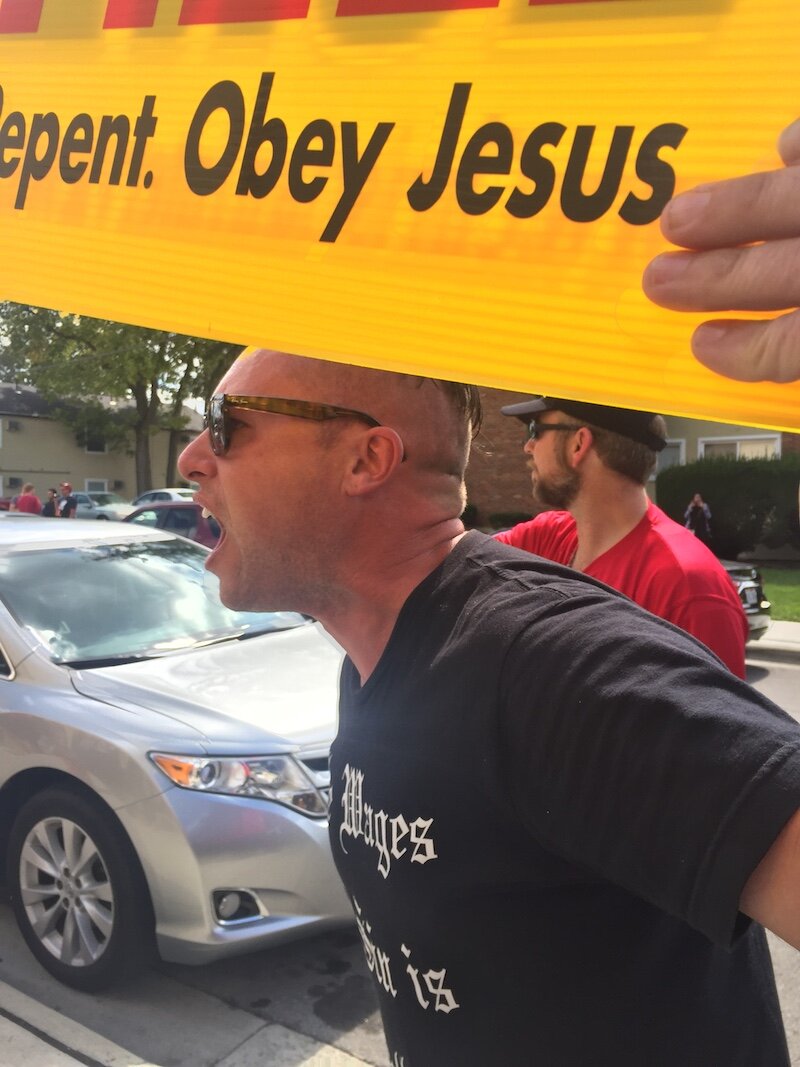Your Eternal Destiny Depends on How you Treat your Neighbor
by Rick Love
A lawyer puts Jesus to the test by asking one of the most important questions of life: "Teacher, what must I do to inherit eternal life?" In typical fashion, Jesus uses spiritual jujitsu on the lawyer by putting him to the test: "What is written in the Law? How does it read to you?" The lawyer gives a good orthodox response: "'Love the Lord your God with all your heart and with all your soul and with all your strength and with all your mind' and 'Love your neighbor as yourself.'" But apparently getting an “A” in orthodoxy is not enough. Jesus says, "You have answered correctly. Do this and you will live."
Not the typical evangelical answer.
Jesus says something similar when a scribe acknowledges the importance of the Great Commandments: "You are not far from the kingdom of God” (Mark 12:28-34). Understanding the importance of these commands shows you are close to the kingdom, but entrance into the kingdom demands obedience. "Not everyone who says to me, 'Lord, Lord,' will enter the kingdom of heaven, but only he who does the will of my Father who is in heaven. Many will say to me on that day, 'Lord, Lord, did we not prophesy in your name, and in your name drive out demons and perform many miracles?' Then I will tell them plainly, 'I never knew you. Away from me, you evildoers!'" (Matthew 7:21-23).
For Jesus, what counts is obedience, not the confession of correct theology.
I can imagine what you are thinking as you read this. "Sorry, Rick, but I am saved by faith not by obedience to the great commandments." Really?
Let’s go back to the original scene with Jesus and the lawyer. The lawyer tries to justify himself and limit the meaning of neighbor by asking another question: “And who is my neighbor?” Jesus then tells the parable of the “good enemy.” We usually call this the parable of the “Good Samaritan,” but that would have been an oxymoron to the Jews. The Samaritans were not good; they were enemies. Anyway… you know the story. So Jesus tells the story to show that love of neighbor is limitless. Love of neighbor bridges every creed and color, race and religion. It means loving the grumpy neighbor next door. It also means loving Muslims, the gay community, illegal immigrants and anybody else we call “those guys.”
And guess what Jesus does again? He asks the lawyer another question and again calls him to obedience. "Which of these three do you think was a neighbor to the man who fell into the hands of robbers?" The lawyer answers, "The one who had mercy on him." And Jesus told him, "Go and do likewise” (Luke 10:25-37).
This sounds so different than most evangelical sermons on “eternal life.” According to Jesus, we inherit eternal life if we love God with all our hearts and our neighbor as ourself! Wow! If we took this seriously, it would lead to an ethical revolution among evangelicals.
Why don’t evangelical Christians take Jesus’ words more seriously? Jesus did say, “heaven and earth will pass away, but my words will never pass away” (Matthew 24:35).
When we ignore or downplay Jesus’ words we get “ethical anemia.” What does ethical anemia look like? When creeds are exalted over deeds. When doctrine is exalted over duty. When orthodoxy is exalted over orthopraxy.
In the past, Red Letter editions of the Bible – where Jesus’ words are in red – irritated me. Why?Because I believe all of Scripture, not just Jesus’ words, are inspired by God. However, as I think about evangelical ethics, the more I like the concept of Red Letter Christians – Christians who take Jesus' words seriously and endeavor to live out His radical counter-cultural teachings.
Most of us run too quickly to Paul’s teaching about justification by faith. But we need to read Paul more carefully. Paul did not just talk about faith. He talked about the “obedience of faith” (Romans 1:5;16:25). Faith is the root. Obedience is the fruit.
We need to listen to Jesus’ little brother as well. James described love of neighbor as the “royal law” (James 2:8). He commanded us to be doers of the word and not only hearers who deceive ourselves (James 1:22). If we aren’t loving our neighbor, James says, we are deceived. Deceived about what? Thinking that we have faith when we don’t. Do you want to know if you are saved? Check out how well you love your neighbor (James 2:20, 24).
The Bible was written to comfort the disturbed and disturb the comfortable. Most of us are comfortable with a faith that fails to love neighbors who are different than us. Jesus would like to disturb us!










